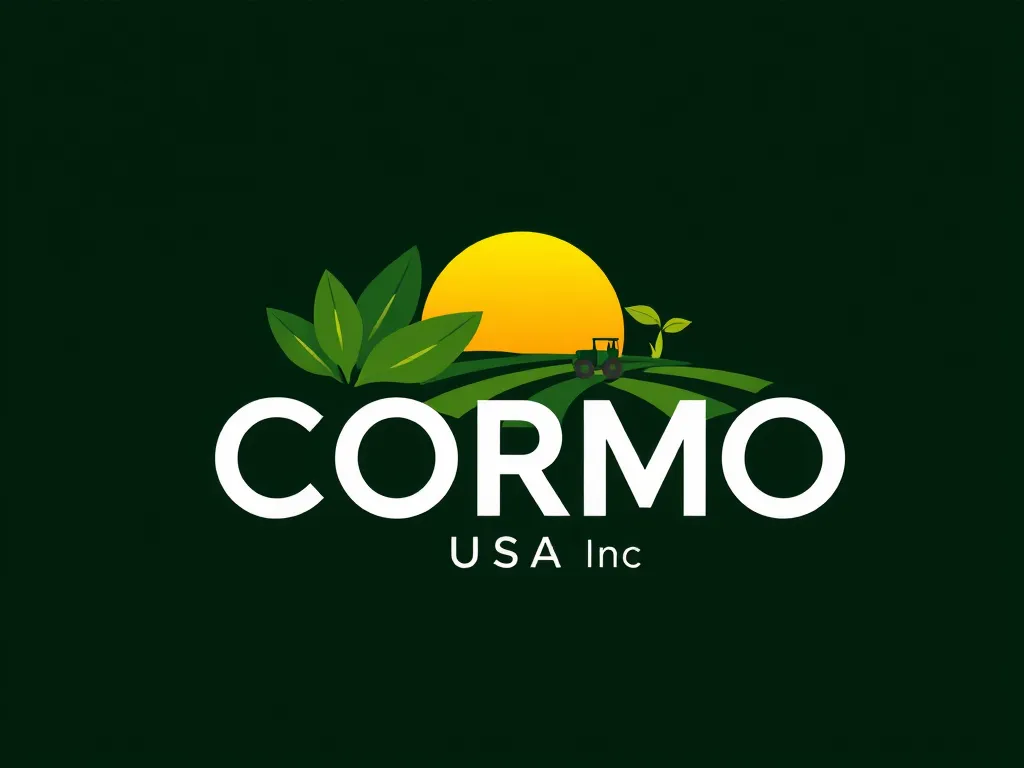Eco-Friendly Solutions in Modern Farming: A Guide

Eco-Friendly Solutions in Modern Farming
Eco-Friendly Solutions in Modern Farming are becoming increasingly essential as the agricultural sector seeks to minimize its environmental impact. These innovative practices prioritize sustainability without compromising productivity, focusing on methods that preserve natural resources and enhance ecosystem health. By adopting eco-friendly solutions, farmers can improve soil quality, increase biodiversity, and reduce dependence on chemical inputs, thereby contributing to a healthier planet.
One significant approach within eco-friendly solutions is sustainable farming practices. These methods allow farmers to produce food while maintaining ecological balance. For instance, organic farming techniques eliminate synthetic fertilizers and pesticides, promoting safer and healthier crops. Such practices not only benefit consumer health but also improve soil fertility and biodiversity, aiding in the resilience of farming systems against climate change.
Another critical aspect of eco-friendly solutions in modern farming is the integration of renewable energy sources. By utilizing solar power, wind energy, and biogas production from agricultural waste, farmers can reduce their carbon footprint. Transitioning to energy-efficient farming equipment also contributes to lower emissions, making renewable energy an integral part of sustainable agricultural practices.
Adopting Eco-Friendly Solutions is crucial for reducing our carbon footprint and fostering a sustainable future.
Soil health and conservation strategies are central to eco-friendly farming solutions. Techniques such as cover cropping and composting enhance soil fertility and structure, while agroecology principles promote biodiversity. This emphasizes the need to maintain healthy soil ecosystems, which are vital for nutrient cycling and crop productivity.
Lastly, effective water management is crucial for sustainable crop production. Implementing drip irrigation systems, rainwater harvesting, and smart irrigation technology enables farmers to use water resources efficiently. By selecting drought-resistant crop varieties and recycling water on farms, agricultural producers can ensure a sustainable supply of this vital resource, even in drier conditions.
Sustainable Farming Practices
Sustainable farming practices encompass a range of techniques that prioritize environmental stewardship and economic viability. Organic farming, for example, involves the use of natural fertilizers like compost and manure, which enrich the soil without the negative side effects associated with chemical inputs. This practice not only boosts soil health but also leads to higher market values for produce as consumers increasingly seek organic options.
Crop rotation is another beneficiary of sustainable farming practices. This technique involves alternating the types of crops grown on a particular piece of land, thereby preventing soil depletion and disrupting pest cycles. By varying plant species, farmers can enhance soil structure, improve nutrient availability, and promote a more resilient farming ecosystem.
Permaculture systems are designed to create sustainable and self-sufficient agricultural practices through ecological design principles. These systems work by imitating natural ecosystems, utilizing diverse plants, animals, and beneficial insects to manage soil fertility and pests naturally, reducing the need for synthetic inputs.
Integrated pest management (IPM) represents a holistic approach to pest control that combines biological, cultural, and mechanical practices. By using beneficial insects, crop rotation, and habitat management, IPM seeks to reduce reliance on chemical pesticides, thus promoting biodiversity and maintaining the health of the farming ecosystem.
Water conservation methods, such as mulching and rainwater harvesting, are vital in promoting sustainable agriculture. Mulching helps retain soil moisture and suppresses weed growth, while rainwater harvesting captures natural rainfall for irrigation use, alleviating pressure on groundwater resources.
Renewable Energy in Agriculture
Solar power has emerged as a leading renewable energy source for farms, offering numerous benefits. Solar panels can be installed on rooftops or fields, providing clean energy to power farming operations while reducing electricity costs. Farmers can also sell surplus energy back to the grid, creating additional income streams.
Wind energy applications in agriculture can harness strong winds to generate electricity. Wind turbines can be strategically placed throughout farms, supplying power that can be used for operations or sold in energy markets. This diversifies farmers’ energy resources and drives down operating costs.
Biogas production from agricultural waste not only reduces greenhouse gas emissions but also provides a renewable energy source. By processing manure and organic waste in anaerobic digesters, farms can convert waste into biogas used for heating, electricity, or even vehicle fuel, promoting a circular economy.
Energy-efficient farming equipment is another crucial development in the agriculture sector. Modern tools and machinery are designed to consume less fuel, utilize electric power, or operate at optimal efficiency, substantially reducing the carbon emissions associated with farming practices.
Hydroponic systems, which involve growing plants in nutrient-rich water solutions, can be optimized for energy use. These systems dramatically reduce the land required for farming and can be installed in urban areas, promoting sustainable food production while minimizing the use of pesticides and water.
Soil Health and Conservation
Preventing soil erosion is crucial for maintaining soil health and agricultural productivity. Techniques such as contour farming, terracing, and planting cover crops can help stabilize soil and reduce runoff. These practices protect farmland from erosion while enhancing water retention and nutrient availability.
Cover cropping is advantageous as it enhances soil health by adding organic matter and preventing erosion. Cover crops act as natural mulch, reducing weeds while improving soil structure, fostering microbial activity, and increasing biodiversity in agricultural systems.
Soil amendments play a significant role in enhancing soil fertility and structure. Natural materials like compost, biochar, and green manures provide essential nutrients and improve soil health, contributing to more resilient farming ecosystems capable of withstanding climatic variability.
Composting practices transform organic waste into rich soil conditioner, decreasing landfill contributions while providing essential nutrients for crops. This sustainable practice not only enriches soil but also helps mitigate greenhouse gas emissions associated with waste decomposition.
Agroecology principles emphasize the relationship between agriculture and ecology. By integrating ecological concepts into farming practices, farmers can enhance biodiversity, promote soil health, and develop resilient agricultural systems that are well-adapted to local conditions.
Water Management Techniques
Drip irrigation systems are highly efficient methods of delivering water directly to plants' roots, minimizing evaporation and runoff. This technology optimizes water use in agriculture while improving crop yields, especially in areas susceptible to drought.
Rainwater harvesting methods collect and store rainfall for agricultural use, providing a sustainable water resource. By capturing runoff and directing it to storage systems, farmers can reduce dependence on external water supplies while promoting self-sufficiency in farming practices.
Water recycling in farming involves treating and reusing water for irrigation, thereby conserving natural water resources. This practice is becoming increasingly vital, especially in regions facing water scarcity, enabling farmers to maintain productivity without over-extracting groundwater.
Drought-resistant crop varieties are specifically bred to withstand dry conditions and require less water for growth. By integrating these varieties into cropping systems, farmers can enhance resilience against climate change and reduce their reliance on irrigation practices.
Smart irrigation technology uses advanced sensors and data analytics to optimize water usage based on real-time conditions. This precise approach allows farmers to apply water only when necessary, significantly reducing waste and promoting sustainable water management in agriculture.
Biodiversity and Crop Diversity
Crop rotation is beneficial not only for soil health but also for biodiversity. By alternating crops, farmers can disrupt pest life cycles and promote a diverse range of soil organisms, leading to more resilient farming ecosystems.
Planting cover crops is another excellent practice for increasing biodiversity in agricultural systems. These crops provide habitat for beneficial organisms, suppress weeds, and enhance soil structure, contributing to healthier ecosystems.
Pollinator-friendly farming practices are essential for sustaining biodiversity and crop yields. By planting pollinator gardens and reducing pesticide usage, farmers can support healthy populations of bees and other essential pollinators that play a crucial role in pollinating many food crops.
Agroforestry promotes biodiversity by integrating trees into agricultural systems. Trees can provide shade, improve soil health, and increase carbon sequestration, creating a multi-layered ecosystem that benefits both crops and wildlife.
Seed saving and heirloom varieties play a vital role in preserving genetic diversity in crops. By cultivating native and traditional varieties, farmers can contribute to greater biodiversity and build resilience to changing environmental conditions.
